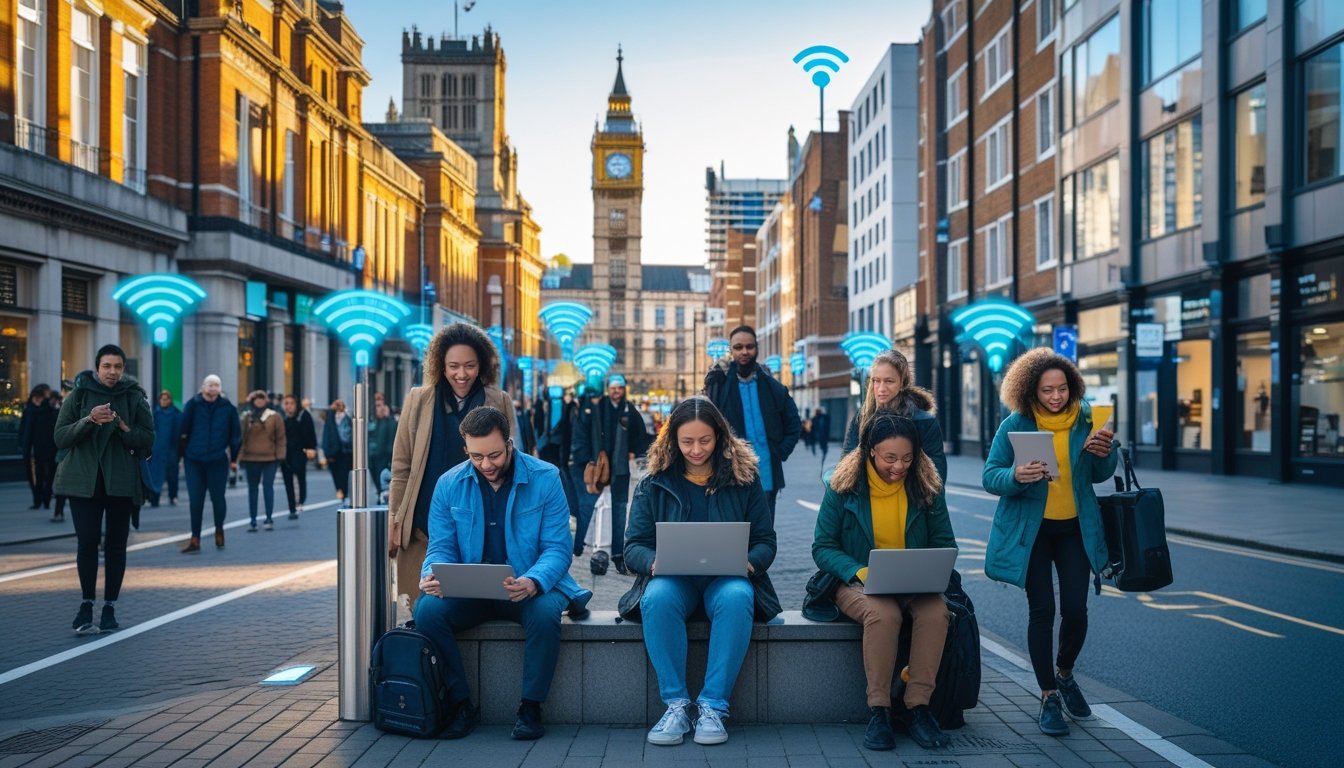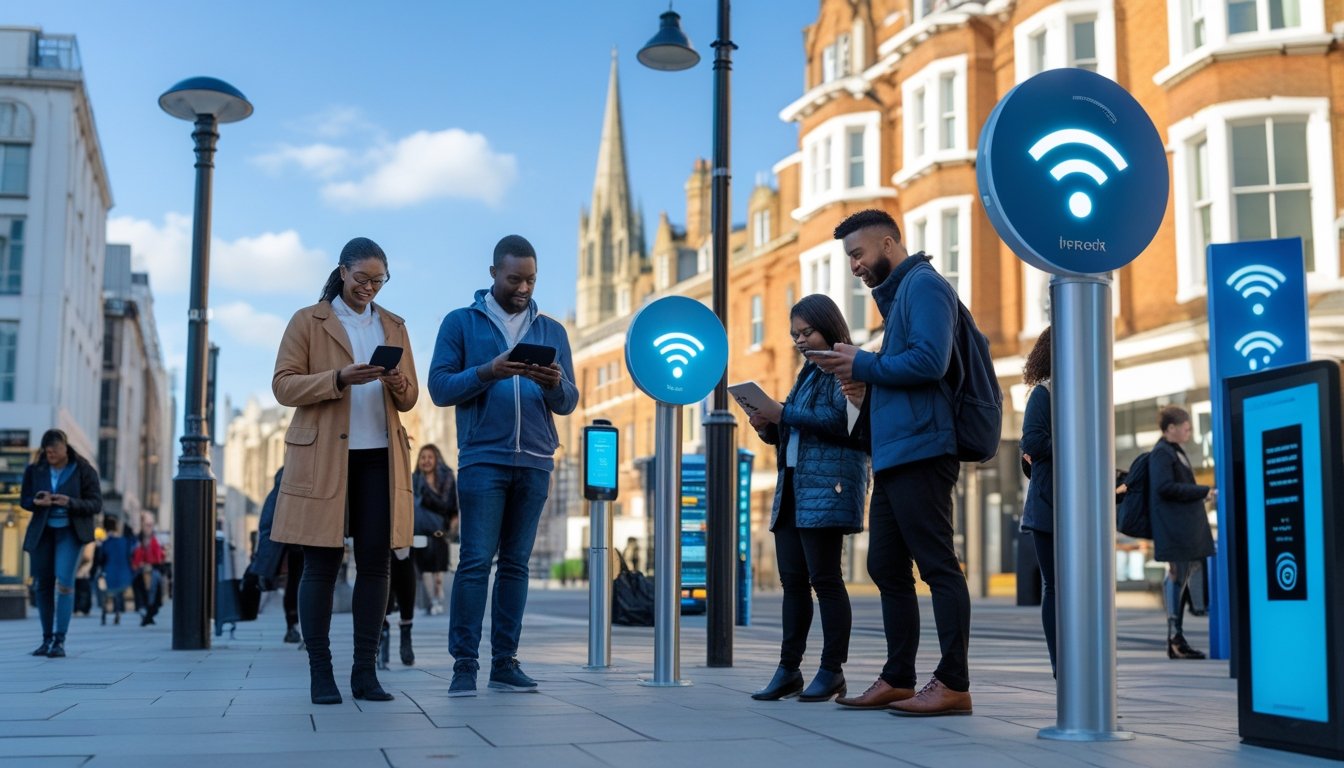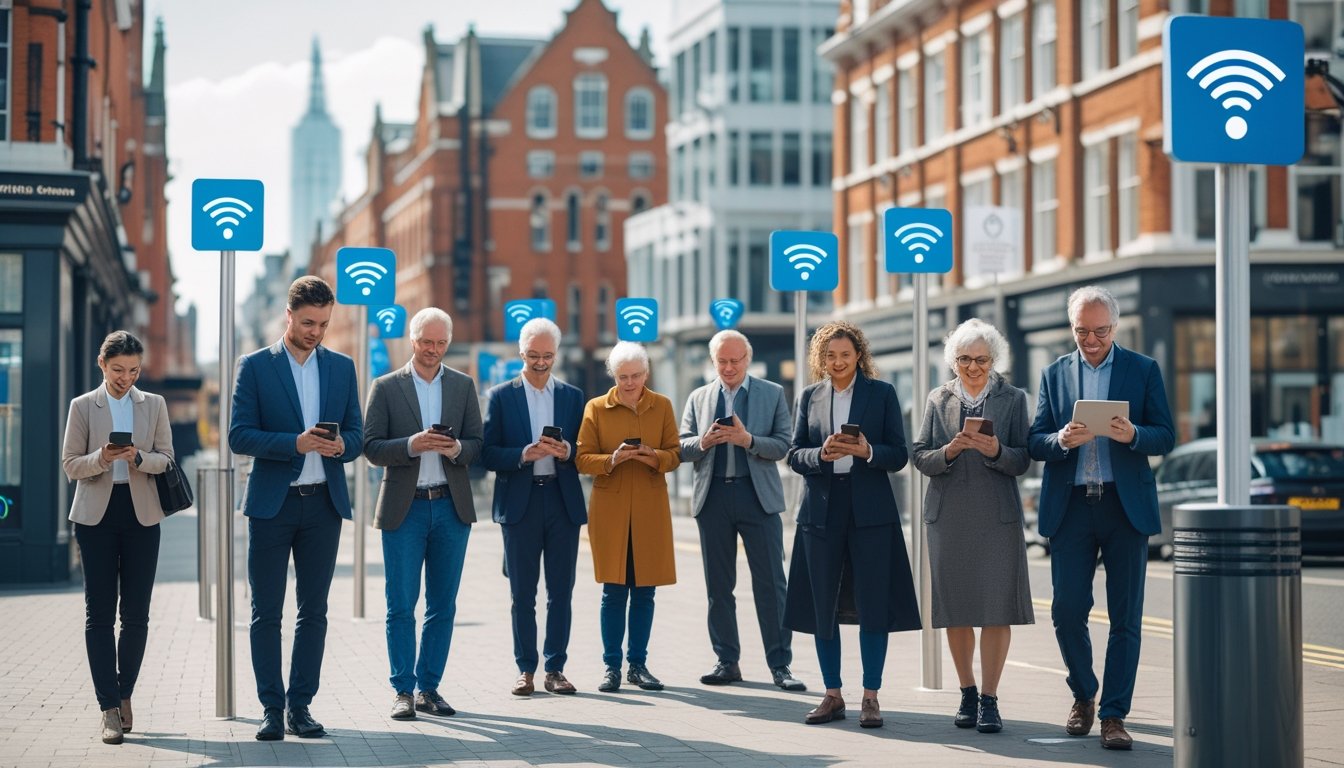Late updated: 13 Sep 2025 15:09
Written by: Oliver Bennett
Improving Urban Internet Accessibility In The UK: Strategies for Enhanced Connectivity
Addressing urban internet accessibility in the UK has become more vital than ever in our interconnected world. While significant strides have been made in boosting high-speed internet access, disparities still persist, especially in densely populated areas like urban flats. Improving access means breaking down these barriers and ensuring that robust connectivity is available to all, fostering both economic productivity and social inclusivity.

Urban residents often experience inconsistent broadband services due to infrastructure limitations and regulatory hurdles. Encouraging providers to simplify access to multi-dwelling units and investing in cutting-edge technology can help resolve these challenges. Our collective efforts should focus on implementing effective policies and fostering collaborations between government and private sectors to craft sustainable solutions.
The key to bridging the urban digital divide lies in holistic strategies where digital literacy and affordable access coexist. As we delve deeper into this topic, we aim to illuminate practical steps and policies that can transform the digital landscape across UK cities.
Key Takeaways
- Urban internet access must be expanded for social and economic benefits.
- Existing infrastructure needs upgrades for better urban connectivity.
- Collaboration is essential for bridging digital gaps in cities.
Current State and Key Developments in Urban Internet Accessibility

Urban areas in the UK are experiencing a significant transformation in internet accessibility. Technological advancements such as full-fibre broadband and 5G networks are crucial components in this evolution, directly impacting connectivity and infrastructure.
Overview of Urban Internet Access in the UK
In UK cities, internet access has seen rapid growth, becoming vital for residents and businesses. High-speed broadband is increasingly available, yet disparities remain across different urban areas. The government's focus on enhancing urban connectivity stems from recognising internet access as essential for economic growth and social inclusion.
London often leads in connectivity, but some cities face challenges in digital infrastructure. Efforts to address these gaps are underway, aiming to create a more equitable digital environment across urban centres.
Role of Full-Fibre and Gigabit-Capable Broadband in Cities
Full-fibre broadband is a critical development driving internet accessibility improvements in urban areas. With higher speeds and more reliable connections, full-fibre infrastructure supports modern digital needs. The UK government has set ambitious goals to expand gigabit-capable broadband, emphasising full-fibre networks as a priority.
In urban settings, such broadband capabilities enable advancements in education, healthcare, and business. Increased rollout of gigabit-capable broadband means fewer delays and disruptions, crucial for cities aspiring to become smart cities. These improvements attract investment and enhance the UK's digital economy competitiveness.
Impact of 5G Networks on Urban Connectivity
5G networks promise transformative changes in urban internet accessibility. The roll-out of 5G technology offers unprecedented speeds, low latency, and connectivity for a multitude of devices. It’s not just about faster internet; 5G enables new digital services and applications vital for smart infrastructure and IoT devices.
Improved connectivity impacts sectors such as transport, healthcare, and commerce. With 5G, UK cities can better manage infrastructure like traffic systems and environmental monitoring. This technology enhances service delivery, promotes innovation, and supports economic development, positioning urban centres at the forefront of the digital revolution.
Bridging the Digital Divide: Initiatives and Impact
We focus on the digital divide in urban UK areas by highlighting the effects of digital exclusion on communities, reviewing government-led initiatives, and exploring local strategies that ensure broader digital inclusion. Efforts to close the gap in digital access aim to empower individuals through improved connectivity and education.
Digital Exclusion and Its Effects on Urban Communities
Urban areas, despite their dense infrastructure, face significant challenges with digital exclusion. Many residents lack access to reliable internet, which affects their ability to engage with essential online services such as education, healthcare, and employment opportunities.
Digital exclusion widens socio-economic gaps and affects mental health and wellbeing. During the COVID-19 pandemic, this divide became more apparent, with many unable to work or learn remotely. Bridging this gap helps foster inclusive growth and equity.
Major Government Plans and Projects
The UK government has taken steps to tackle the digital divide with initiatives like Project Gigabit, which aims to deliver gigabit-capable connections across hard-to-reach urban areas. This project focuses on enhancing digital access through infrastructure upgrades, ensuring more households have high-speed internet.
Funds and resources are allocated to provide affordable connectivity to underserved communities. Collaboration between the public sector and private companies progresses infrastructure rollout, making digital services more accessible to everyone.
Digital Inclusion Strategies and Community Interventions
Community-based initiatives play a pivotal role in bridging the divide. Local organisations, libraries, and schools offer digital literacy programmes, ensuring residents gain the skills needed to navigate the digital world. This empowerment is crucial for accessing educational resources and employing new technologies.
Partnerships between government, tech companies, and non-profit organisations foster digital inclusion by distributing devices and offering affordable internet packages. By promoting educational workshops and free access points, we support a more connected urban community capable of thriving in the digital age.
Frequently Asked Questions

Addressing issues surrounding urban internet accessibility in the UK involves various strategies. From infrastructure upgrades to collaborative efforts, significant steps are taken to improve equal access and affordability.
What strategies are in place to ensure equal internet access across urban regions in the UK?
To ensure equal internet access, several initiatives are in progress. These focus on expanding broadband networks and upgrading existing infrastructure. By prioritising high-speed connectivity, we aim to bridge gaps in service quality across different urban areas.
How is the UK government addressing the digital divide in major cities?
The UK government is actively working to close the digital divide. Initiatives such as Project Gigabit aim to deliver high-speed broadband to underserved urban areas. Government policies support network providers in overcoming deployment challenges and regulatory hurdles.
What advancements have been made in broadband infrastructure to support internet usage in urban areas?
There have been substantial advancements in broadband technology. Fibre-optic networks are expanding rapidly, providing faster and more reliable connections. These upgrades are crucial in supporting the increasing data demands of urban areas and enhancing overall user experience.
What role do public-private partnerships play in enhancing internet connectivity in UK cities?
Public-private partnerships are key to boosting internet accessibility. These collaborations help fund and implement infrastructure projects, leveraging resources and expertise from both sectors. This synergy accelerates the deployment of cutting-edge technologies and ensures more comprehensive coverage.
How are emerging technologies being leveraged to improve internet access in UK urban environments?
Emerging technologies like 5G are being deployed to improve connectivity in urban areas. These technologies facilitate faster data transfer and greater network capacity. The integration of advanced tech solutions plays a vital role in supporting the growing digital needs of urban populations.
What measures are being taken to improve internet affordability for UK urban residents?
To make internet access more affordable, providers and policymakers are introducing economic plans and subsidies. Such measures aim to lower costs for consumers, ensuring more residents can access high-speed internet without financial strain. Affordability initiatives are a core component of digital inclusion efforts.
